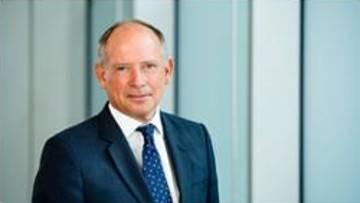Looking from the outside in with Barclay's Chairman
4th January 2019 by ofc Press Team

The Chairman of Barclays gave his view on the future looking from the 'outside in' to the farming industry. As well extensive experience in retail and supply chains, Sir Ian Cheshire is chair of the Food, Farming and Countryside Commission and in his speech emphasised the importance of constantly changing as a business, identifying what the consumer wants and on a business’ resilience and adaptability.
Saying that the upcoming change is “going to take a very long time”, Sir Ian said the industry would need “a lot of flexibility and adaptability” while new regulation and trade deals come along.
“Frankly there are no answers… and it puts the initiative on us, those driving businesses, to work out what we want to do, what we can do in uncertainty.
“One of the hardest things for businesses to do when they have found something they are good at is change….The companies that do well build in change, not seeing it as miserable and something that is done unto you. A lot of businesses I work with are always looking at how they can move forward, not just sitting in a bunker and wondering how to change.”
Using the iphone as an example, Sir Ian illustrated that change is not always controllable but that you can adapt to embrace it. He added that tech and social media has opened up suppliers to consumers around the world, and how they can adapt to meet these markets and reach consumers direct through this media.
Sir Ian emphasised the importance of customers, which are not always obvious in farming.
“We are talking about a genuinely different player in agriculture as there is the supply chain but also the public, who are paying subsidies and I would encourage you to think of them away from your direct financial customer.”
He encouraged the industry to talk to and test ideas with these customers, and to differentiate your offering by doing something interesting.
“The customer always has something different and interesting to tell you. The day you stop learning from customers is the day your business stops growing.”
Citing the Henry Ford example of offering not just a faster horse, Sir Ian encouraged farmers to think smart, interact with the customer, see what they want and what you can do for them.
On public goods, and the ‘public customer’, he predicts a more systemic view of money going into areas of which farming is a part, and there will be a question on public health and the link between food production and diet.
“It is liberating that we can debate what CAP is and what are the really valuable public goods. There is a massive opportunity to discuss how farming plays a role in the public health agenda.”
On resilience, Sir Ian encouraged farmers to look at what is the resource of resilience in their business and think about it in a fundamental -“not a box-ticking, risk assessment” - way.
This, he said, is tied to adaptability, which is where he has seen the biggest shifts in the business world in the last five years.
“What used to be an advantage of scale has turned into a disadvantage of slowness. Combine the benefits of small-scale flexible businesses coming together to collaborate to create scale where it’s useful but not where it becomes a disadvantage.
“Adaptability is the single most valuable thing any business can have, and even in a business as deeply rooted in tradition as farming, that is a great opportunity.”
Watch the full presentation here
Sponsored by M&S
